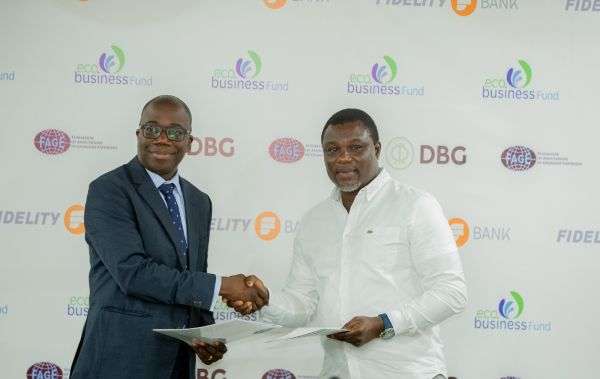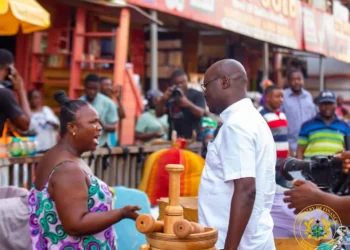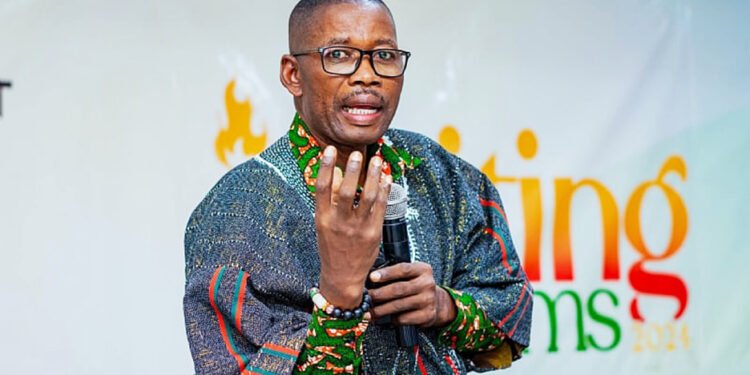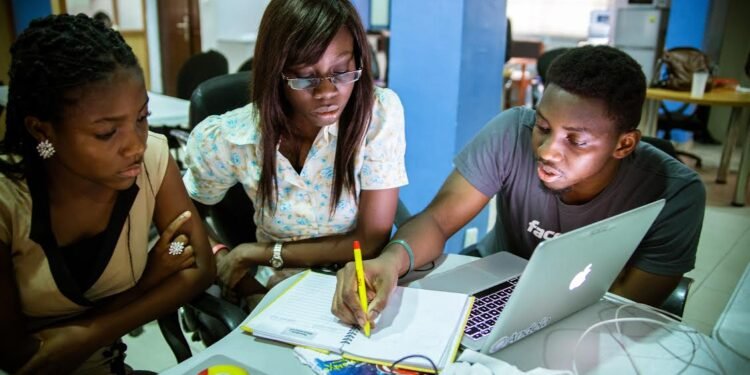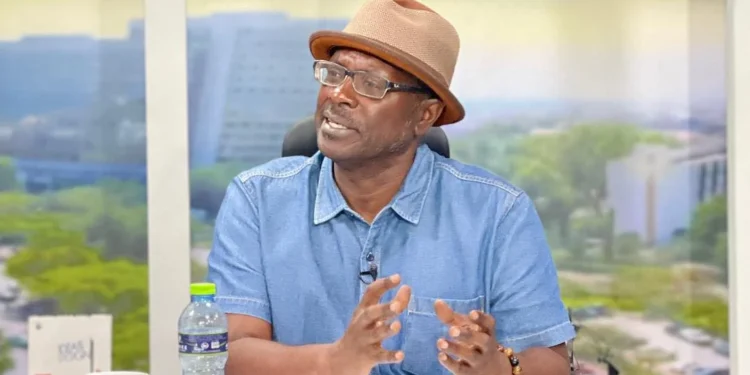Fidelity Bank, Ghana’s largest privately-owned indigenous Bank, has partnered with the eco.business Development Facility (the eco.business DF), Development Bank Ghana (DBG) and the Federation of Associations of Ghanaian Exporters (FAGE), to unveil an ambitious and far-reaching export value proposition targeted at Ghanaian export-oriented businesses.
The partnership seeks to boost export trade for Ghanaian enterprises within the agricultural and non-traditional export sector. The plan hinges majorly on the formation of the Fidelity Export Club, an initiative supported by all the export value partners which seeks to provide a common front for Ghanaian exporters and provide them with critical support in areas such as market access and expansion, capacity building, access to finance, regulatory compliance, technical assistance as well as the adoption of sustainable business practices.
Club members will also benefit from quick and stress-free application processes, flexible repayment terms and conditions, competitive interest rate charges, transaction-based lending and competitive charges.
Following the official launch of the Fidelity Export Club after a brief Memorandum of Understanding (MOU) signing ceremony at the Head Office of Fidelity Bank, the partners immediately launched a nationwide series of one-day seminars to sensitize Ghanaian exporters about critical sustainability practices in their line of business.
The series of seminars themed ‘Empowering business to drive sustainable growth through compliance to regulatory and environmental principles -The Agric and Perspective’ were held in Accra, Takoradi and Sunyani. The presentations, deliberations and workshop sessions focused on enhancing regulatory compliance as well as promoting sustainability and ESG practices in the agricultural and export industries.
More Than 400 Stakeholders Participate In The Seminar
More than 400 stakeholders from across the country’s export value chain participated in the seminar series. They included primary producers and processors, exporters and aggregators as well as agricultural stakeholders such as experts from the Plant Protection and Regulatory Directorate (PPRD), Environmental Protection Agency (EPA), Ghana Export Promotion Authority (GEPA), GIRSAL, Ghana Standards Authority (GSA), Food and Drugs Authority (FDA), Office of the Registrar of Companies and the Ghana National Fire Service.
Through a combination of presentations, interactive panel discussions and knowledge-sharing sessions, participants at the workshop addressed how they could maximize their export products to meet the international market demand in a sustainable manner. They also explored ways to improve overall sustainability of the entire Agric and export value chain through improved access to finance and markets, as well as capacity building on inculcating sustainability principles in their operations, and the acquisition of critical certifications such as Global G.A.P. or Fairtrade International.
Speaking on the sidelines of the seminar, Mr Julian Opuni, Managing Director of Fidelity Bank iterated that Fidelity Bank is ever-willing to provide financial support and advisory services to local businesses and entrepreneurs within the various value chains in the Agric and export sector across the country.
“Here at Fidelity, sustainability principles, as well as Environmental, Social and governance (ESG) practices, form a core, non-negotiable facet of all our business operations. ESG considerations have been embedded as a primary requirement in our credit facility approval modalities. In line with this, we are keen on liaising with our export value partners to champion the integration of ESG principles in our customers’ businesses.”
Mr Julian Opuni
Ms. Lisa Stahl, Chairperson of the eco.business Development Facility for sub-Saharan Africa on her part said she welcomes the launch of the Fidelity Export Club and believe it can significantly contribute to the sustainability of Ghanaian agricultural export sector and overall economic development. “We were particularly thrilled to have facilitated training for over 300 farmers and value chain actors, enabling them to champion sustainable practices that safeguard Ghana’s biodiversity, ensure responsible resource utilization, and tackle climate change impacts,” she said.
The Deputy CEO of Development Bank Ghana, Mr. Michael Mensah-Baah emphasized DBG’s role in supporting the growth of the private sector.
“At DBG, our mandate is to support the growth of the private sector; we do this primarily by providing long-term funding. We however recognize that funding alone is not enough to guarantee the desired growth for our clients in the private sector that is why we engage in progressive partnerships such as this to provide a comprehensive package of funding, capacity building and technical expertise to drive the required growth of private businesses, in this case within the agro and non-traditional export sector.”
Mr. Michael Mensah-Baah
Mr. Michael Mensah-Baah noted that as part of its efforts to promote environmental and social governance, DBG is playing a critical role in driving climate mitigation and adaptation by providing both technical assistance and funding. He added that DBG was the first Ghanaian financial institution to become a member of the United Nations Global Compact, a body that promotes sustainability principles.
President of FAGE, Mr. Davies Narh Korboe, lauded the initiative and expressed excitement about the launch of the export club and the roll-out of the seminars and other related activities.
“This partnership has come at the right time as it is really critical for the non-traditional export sector. I’m particularly happy to see that the focus of this initiative is very comprehensive and covers not just the export but other key considerations on the part of the exporters such as production, regulatory compliance, advocacy and sustainability practices.
Mr. Davies Narh Korboe

